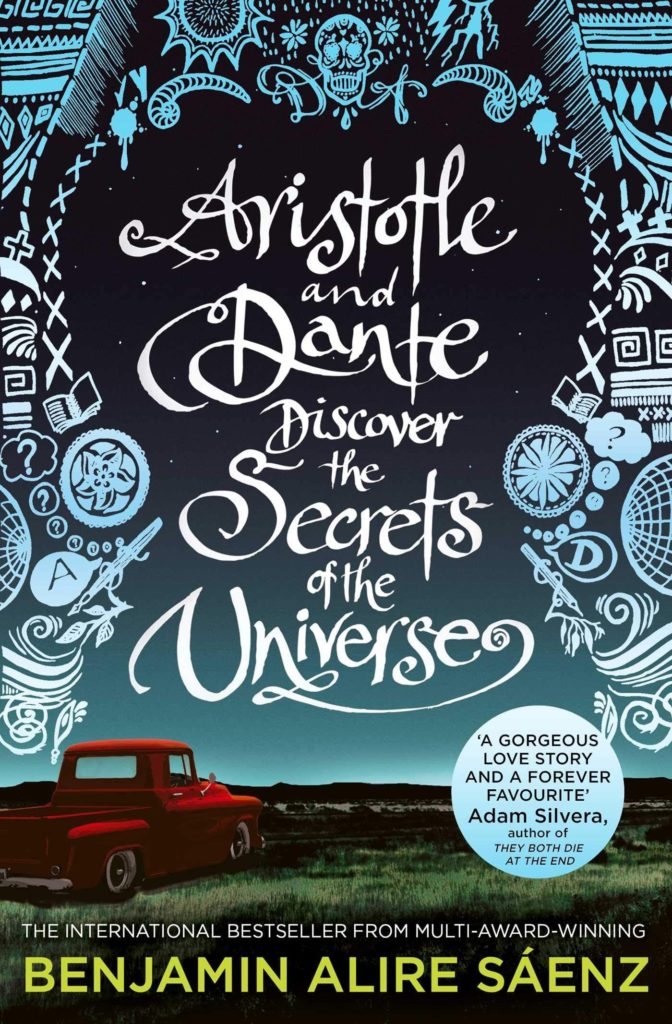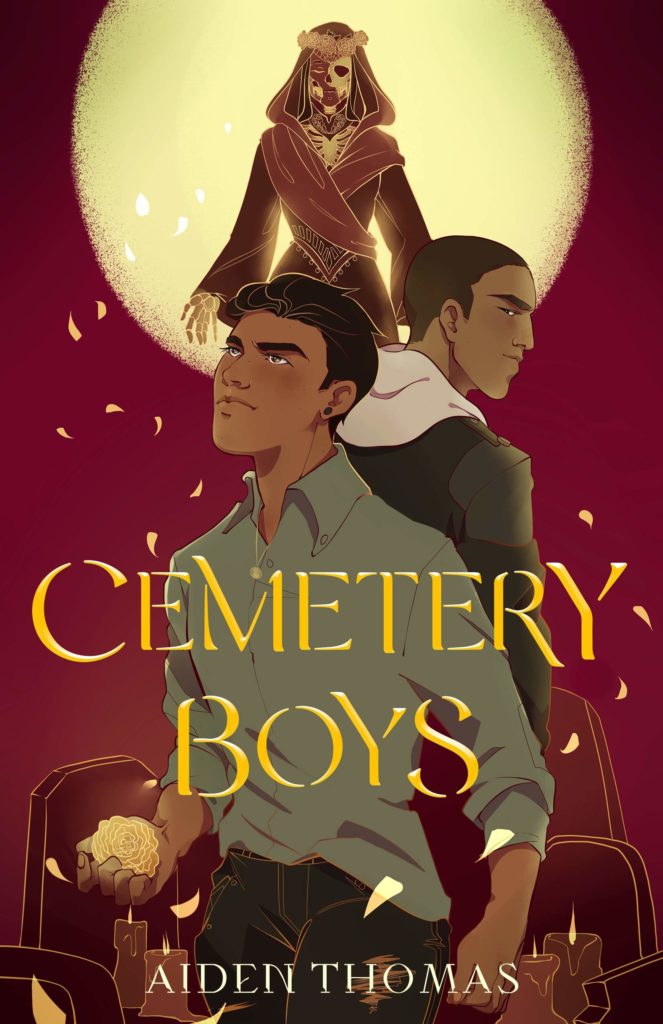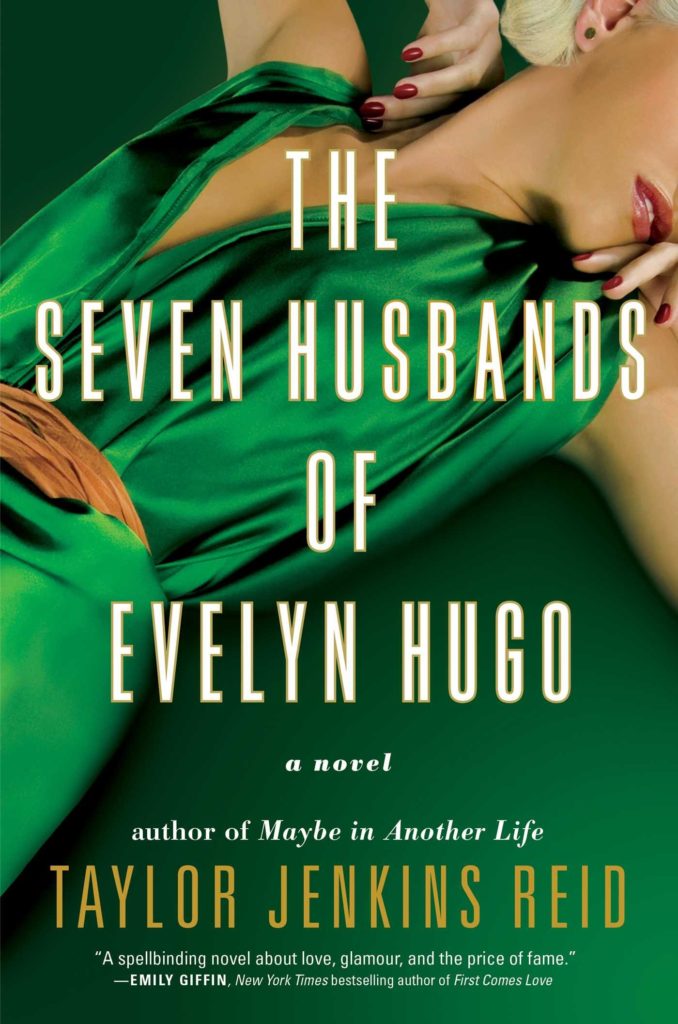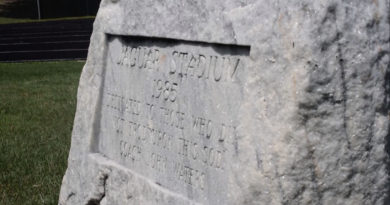Shelving a safe space
Media representation is crucial for young LGBTQ+ people when attempting to find their identity and acceptance. In February, The Cedar Shoals library adapted an LGBTQ+ romance section in hopes of shaping a safe space for students and staff.
Media specialist Megan Ogden says the variety of books with LGBTQ+ characters in the collection are meant to better represent the wide community of LGBTQ+ students and to educate all of the Cedar Shoals population.
“LGBTQ representation is on a rise in literature in general. It’s always been part of our mission statement to make sure that we represent everyone,” Odgen said. “It’s really important to us to make sure not only do we have books that represent all of our students, but books so that if you don’t understand a particular group of people, you have an opportunity to experience that.”
Media specialists curated the section to represent and include members of the Cedar community and inspire schools and libraries across the country to do the same.
Junior Ash Plaksin, who identifies as nonbinary and queer, feels that media representation is important for all students.
“Not having the section is fine, but having one is more celebratory and I think it’s a good thing. I think it will help other kids be like ‘Hey, they have the whole LGBTQ+ section,’ and also might encourage them to find more books that include characters like them,” Plaksin said.
With LGBTQ+ representation increasing, non-LGBTQ+ people being exposed to LGBTQ+ characters in books and film are more likely to be accepting to the community in their everyday lives according to a study published by Glaad.org.
Senior Mattie Johnson says representation is crucial in helping LGBTQ+ youth to discover parts of themselves while providing a sense of safety at school.
“High school is a very important time for growth and realizing who you are. I know I spend a lot of my time questioning my sexuality. Having something in the library that represents that could be very important for some people to help realize who they are,” Johnson said. “A bunch of kids who are LGBTQ+ may not be in a situation where it’s socially accepted. They might not be in a safe situation where if they do come out, they could be in danger. Representation will show them that It’s not a bad thing and it’ll make them feel less alone.”
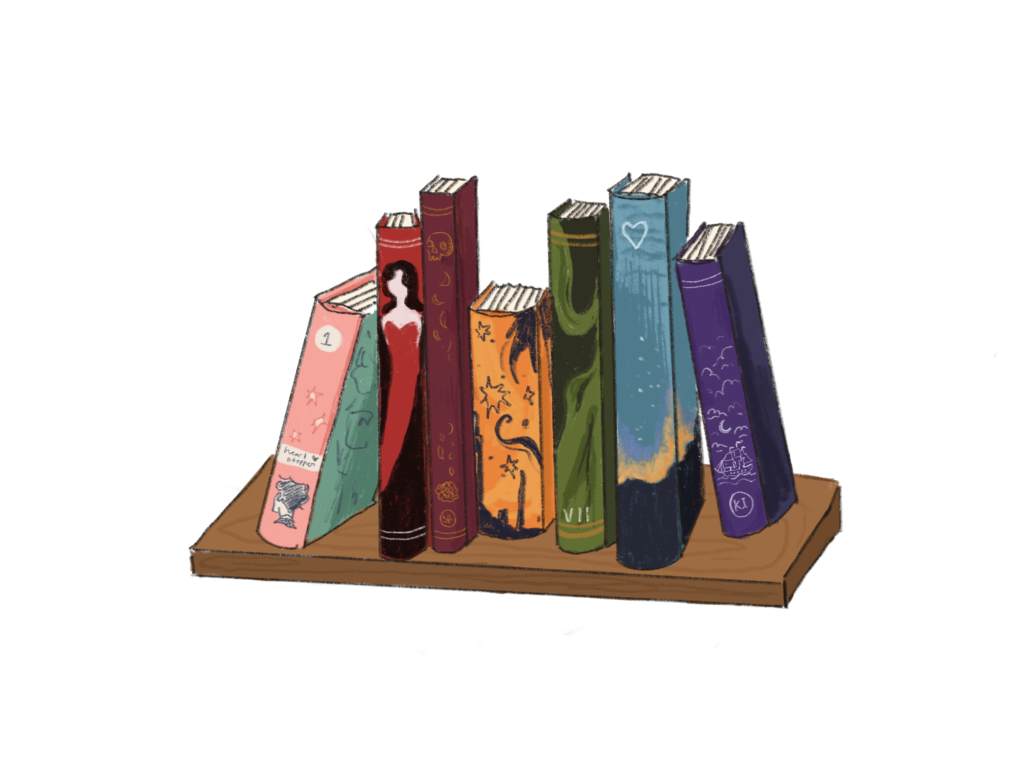
Plaksin feels that books in the genre have helped them to find and explore their identity
“Seeing yourself in the media helps solidify that it’s okay, and it also helps spread awareness for kids who may be struggling with their identity,” Plaksin said. “I just enjoy reading them (LGBTQ+ romances) because most books are straight romances and it’s nice to be represented, especially when there’s nonbinary characters. I can be like, ‘Yeah that’s me, cool!’”
Even though the section has not received any backlash or requests of removal since its creation, there are still critiques from students reading the books.
“There’s not enough. It needs to be focused on queer writers writing similar stories to their own, because it’s great that straight writers are including gay romances, but they havent had those experiences and so it’s always nice to see queer or trans authors,” Plaksin said.
Tara Stuart, English department, attempts to show her support through decorating her classroom with LGBTQ+ flags and stickers, as well as creating an LGBTQ+ library of her own. Most importantly, she says it’s important for her to talk about her identification and family life in hopes of becoming a safe place for her students.
“Representation is really important. I’m gay and I come out to my classes on the first day of school. It’s really important to me to show them a picture of me and my wife at our wedding and normalize it. When I was in high school, there were certainly no out adults in the building,” Stuart said. “I think it’s really important for kids to be able to see representation of people who maybe are like them or like family members of theirs, so that it does feel normal and like they’re accepted.”
Previously, Stuart worked to help students run a Genders & Sexualities Alliance club consisting of both members of the LGBTQ+ community and allies. The purpose was to give people a safe place to talk as well as working to end homophobia and transphobia.
“I sponsored essentially a GSA at the last school that I worked at. There was nothing like that in Winder before. A big part of me doing that was trying to normalize being queer. I got a grant to buy a bunch of books, so I got to go through and pick like 50 books to put in my library as well,” Stuart said.
Part of creating an LGBTQ+ romance specific section in the library is helping to make books within the category more accessible to students who may not be comfortable asking for them.
“One of our jobs as librarians is to make it easier for students to find books in all different types of genres. We want to make sure that those are easily accessible because a lot of times we’ve had students request LGBTQ+ specific books and sometimes a student might not want to walk up to me or Mrs. (Kerry) Hogan, because we’re not a familiar face to them. We don’t want to hinder their ability, you can’t always look at the title or look at characters and initially know that this is going to be an LGBTQ+ book by looking at the cover,” Ogden said.
While the book collection was organized with the main goal of representing LGBTQ+ students, another benefit is educating those who may not understand or relate to those peers.
To Ogden, media specialists are responsible for helping to educate everyone within the school whether they identify as LGBTQ+ or not.
“I think books really help us empathize with other people so I want those available for everyone. Not just the LGBTQ+ community, but for those that might want to understand better,” Ogden said.
While Stuart does identify as queer, she appreciates the impact that reading about other sexualities or labels within the community has had on her awareness.
“It’s been really insightful to read books about people who are nonbinary or transgender because that’s something that I personally don’t have experience with. When you read a book, you want it to be like a mirror, reflecting some things about yourself so that you can connect to it, but it’s also really important for it to be kind of like a window into other people,” Stuart said, “Ultimately, we all have to live in this community together and when someone is so different from you, it’s helpful to be able to read a book about someone who is queer or nonbinary or transgender.”
While the Cedar Shoals library is yet to face any controversy or backlash from the school community, Ogden believes they are prepared to deal with any demands they might face.
“I think we have a very open community here, but that’s not to say that we wouldn’t or couldn’t face any backlash. Especially being that book bannings are on the rise, and right now the books that are the most banned books happen to be books that discuss race or books that discuss LGBTQ+ rights. We’re prepared to face any type of backlash that we might receive. That’s why we have certain policies in place as well as a library committee. Part of our title is to be prepared to face that kind of stuff,” Ogden said.
With recent escalation is LGBTQ+ related book bannings, Johnson feels that accurate media representation is important in the education of young children to create more accepting adults.
“I feel like sexuality is something kids need to know about. Not in detail, but I feel like it is something they need to talk about from an early age so that they have more time to process it and realize how they feel about it. We already force heterosexuality on the kids. It’s not a bad thing to expose children to different sexualities. It’s so that they know,” Johnson said.
Books with LGBTQ+ characters make up over 80% of the most challenged children’s books across the country. Stuart believes that banning books with LGBTQ+ characters is detrimental to students attempting to feel accepted.
“You can’t erase these stories. These people exist in the world and trying to straight wash is not healthy. It’s really hurtful to people in the community. It’s really sad to think that there are still schools that aren’t safe, that are trying to ban things or keep kids from seeing something,” Stuart said.
Although the LGBTQ+ romance section is still fresh in the library since its creation in February, the media specialists plan to add many more additions creating a wide variety of options for those looking for representation or education.
“It really changes how I feel about the school because it’s not really something you hear a lot about. You don’t really hear a bunch of schools coming up with LGBTQ+ sections, so it really makes me proud,” Johnson said. “I know it’s going to help a lot of people, and I know it’s going to help especially the younger students, like freshmen who may be questioning their sexuality.”


